You may think I am obsessed with S&*( after writing about Dog Feces and now Dirty Diapers. I will tell you why.. On the forum, Next Door and the San Diego Union, there has been articles and some discussions about public urination and human waste. Most of it was attributed to homeless and many people expressed disgust.

Quite frankly it pisses me off, because much of the urine and feces in public are from… you guess it.. dirty diapers. That said 99% of the dirty diapers left on the beach are NOT from homeless.
Unfortunately viewing and smelling diapers laying on the beach, in parking lots, on picnic tables, floating in the water, in storm drains, in the street is a usual sight. If you think this is a rare occurrence only seen in San Diego.. google it… dirty diapers are found everywhere, on all beaches, check any clean up statistics and you will find dirty diapers. For the life of me, how could any parent, leave behind dirty diapers? I just don’t get it…
Little did I know, dirty diapers is a huge global issue, contributing to flooding, contaminated water, sick animals and people. Many countries do not have the infrastructure to deal with this.. which only contributes to their environmental issues.
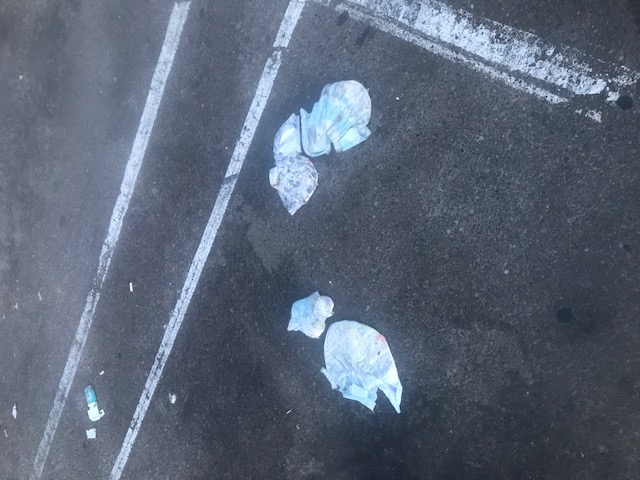
But just in case you think this doesn’t happen in the USA. try googling illegal dumping and diapers and you will find thousands of images of diapers illegally dumping in almost every city and state in the USA.
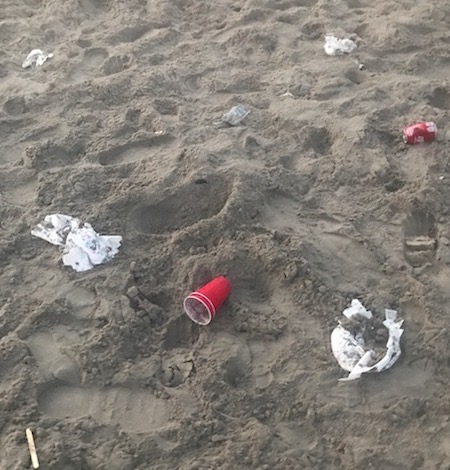
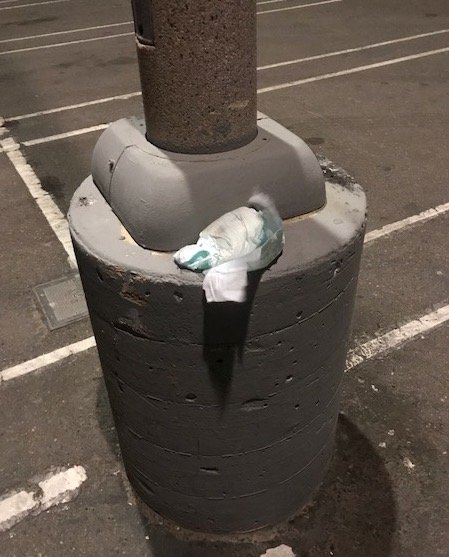
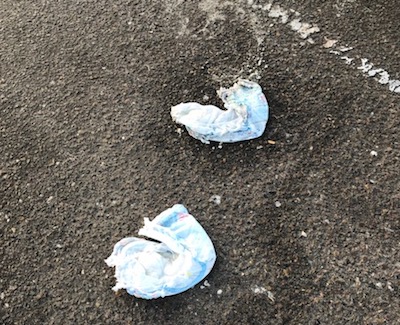
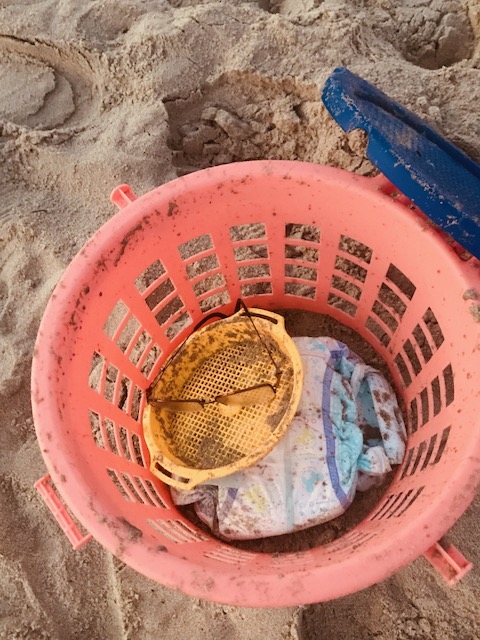
Dirty Diapers are filled with toxic waste to both humans and animals. Dogs have been known to use dirty diapers as toys, Rats and flies feast on diapers, spreading more bacteria and germs. It stinks in more ways than one.
I Just Have to Eco You
- 6-8 Diapers per day the average baby uses.
- 27.4 billion single-use, plastic diapers were used in 1988 in the USA.
- $19 billion in 2017 (United States and Latin America) and is expected to reach US $25 billion by 2023.
- 40.37m diapers used daily in the US
- 15 billion disposable diapers end up in landfills per year in the US
- 2.4 million ton of waste in the USA.
- 286 pounds of plastic (including packaging) to diaper just one baby.
- 200,000 trees each year are lost to the manufacture of disposable diapers for babies in the U.S. alone.
- 3.4 billion gallons of fuel oil every year to make diapers.
- Disposable Diapers release methane, one of the primary causes of global warming
- Disposable diapers use 20 times more raw materials, two times more water and three times more energy to make than cloth diapers. (Livestrong)
- 3rd largest consumer item in landfills are disposable diapers.
- The global baby diapers market was worth US$ 46.5 billion in 2016, and its total revenue is forecasted to grow to US$ 67.5 billion by 2022. In the US and many European countries, disposable diapers account for more than 90% of all diapering.
- 33% of a Super absorbent polymers account for a diaper’s weight
- Disposable diapers are made of polypropylene, polystyrene, elastics, and adhesives.
- 50 different chemicals with various potential skin irritations (cancer, toxic shock syndrome, asthma, and impairments to the immune and endocrine systems) are in one single disposable diaper.
- 500 Years for a super absorbent diaper to decompose.
Java, Indonesia
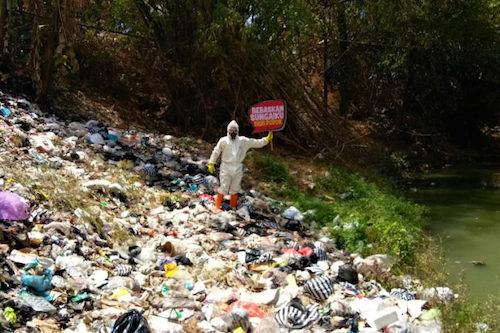
India:… used diapers and sanitary napkins lying at various garbage dumps pose a major health hazard. Stray dogs are often seen picking such waste, which further intensifies the threat of an epidemic. A report prepared by the PPCB reflects that normal disposal of used diapers and sanitary napkins is a major cause of environment pollution and causes health hazards. “Hence, we have decided to send such toxic household waste to the incinerator in Kharar. (Times of India)
Incineration the answer to Diaper Dilemma (China) The world “consumed” is the right word – a total of 150 billion baby diapers in 2012, and 31 billion adult diapers. And the market is growing by around 9 billion a year. Add to this about 300 billion “feminine hygiene products”.
The only thing I want is to be able to find one of those people who has left their crap on the beach… they will get the benefit of years of picking up after inconsiderate people. I cannot wait to unleash my disgust!!!
Resources:
Bulaway: Diaper Disposal Headache for Stakeholders
Zimbabwe Lawmakers Target Disposable Diapers
End Water Poverty: Disposable Diapers A Growing Threat in Africa’s Rivers
Used Diaper on Santa Monica Beach (2017)
Bye Bye Diapers ; Families explore a climate-friendly alternative to diapers. Which means not having babies wear diapers at all.
